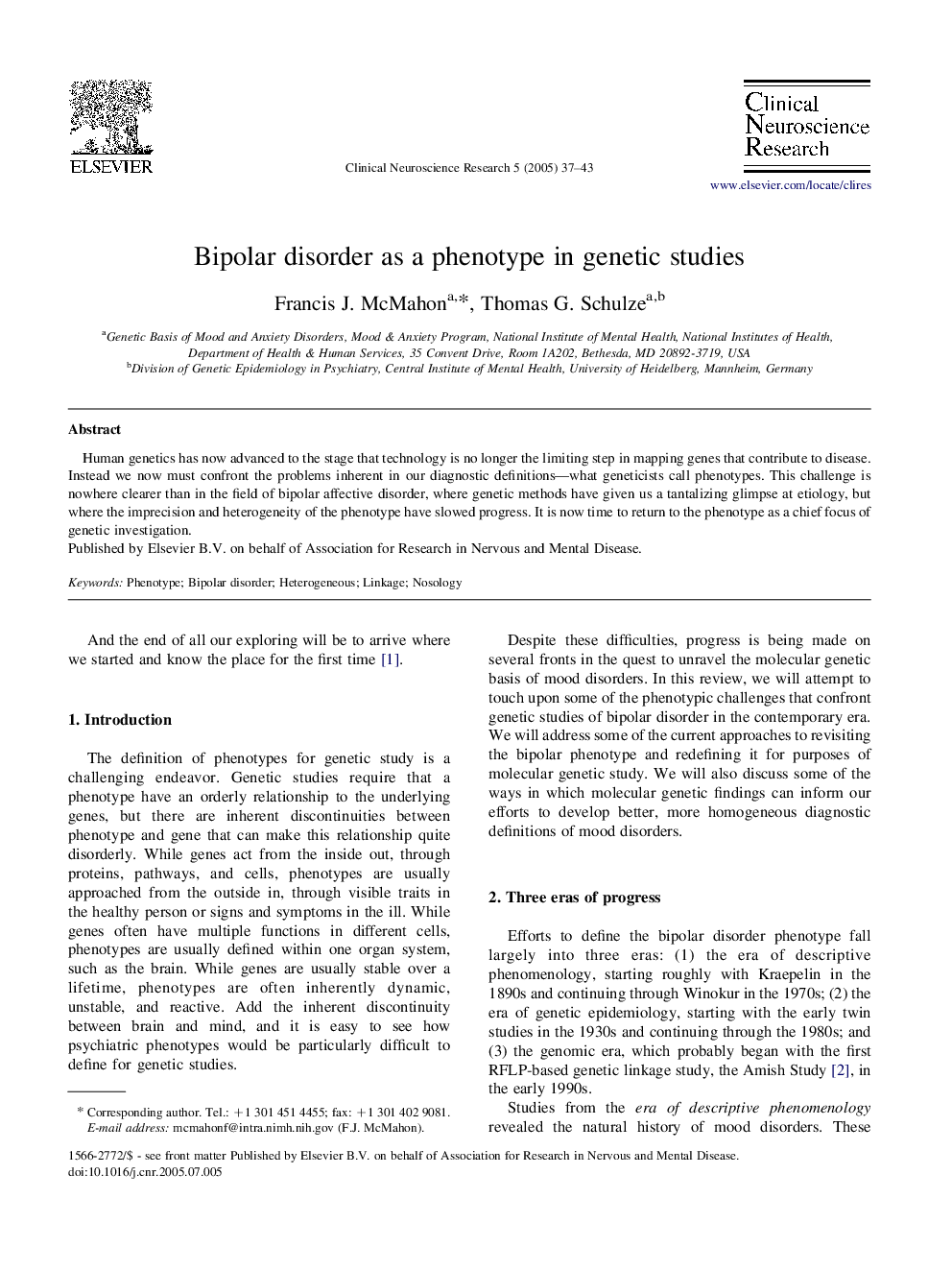| Article ID | Journal | Published Year | Pages | File Type |
|---|---|---|---|---|
| 9189903 | Clinical Neuroscience Research | 2005 | 7 Pages |
Abstract
Human genetics has now advanced to the stage that technology is no longer the limiting step in mapping genes that contribute to disease. Instead we now must confront the problems inherent in our diagnostic definitions-what geneticists call phenotypes. This challenge is nowhere clearer than in the field of bipolar affective disorder, where genetic methods have given us a tantalizing glimpse at etiology, but where the imprecision and heterogeneity of the phenotype have slowed progress. It is now time to return to the phenotype as a chief focus of genetic investigation.
Related Topics
Health Sciences
Medicine and Dentistry
Clinical Neurology
Authors
Francis J. McMahon, Thomas G. Schulze,
